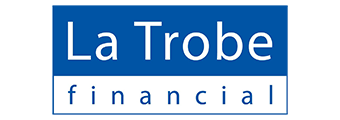Perhaps one of the most pertinent factors a lender will assess when considering your home loan application is your income. If your income looks different to the norm, your lender may do a double take. But that doesn't necessarily mean you're ineligible for a home loan.
Home loan lenders want to provide mortgages to those who can afford to repay them, after all.
Can you get a home loan as a casual worker or self-employed person?
If you draw a wage from your own business, you've just started a new job, you work casually, or a significant chunk of your pay comes from overtime penalties, chances are you can still borrow to purchase a property.
"As a rule of thumb, you need to evidence job security," Icon Money managing director Jasjeet Makkar told Your Mortgage.
"If you're a casual worker, a bank will want to see that you've been working casually for a number of years, or at least the last 12 months.
"[If a lender's self-employment policy applies to you] at a bare minimum, you must evidence your income by providing your full year's tax return, and some lenders want two years' tax returns."
Home loans for casual or self-employed workers
Those who have an income that is unusual or that they can't prove through traditional methods might want to explore the possibility of a low documentation (low doc) home loan.
Lender Home Loan Interest Rate Comparison Rate* Monthly Repayment Repayment type Rate Type Offset Redraw Ongoing Fees Upfront Fees Max LVR Lump Sum Repayment Extra Repayments Split Loan Option Tags Features Link Compare Promoted Product Disclosure
A low doc home loan requires different (but not always less) documentation to secure than a traditional home loan. In rare cases, a lender might only need a letter from a person's accountant detailing their income before issuing a low doc home loan.
However, a low doc home loan isn't a silver bullet, Mr Makkar warns.
"Forget about proving [your income] to a lender, you're still going to have to prove to yourself that whatever you're doing, you have consistency in your income, because you're about to take on a huge commitment," he said.
Why is a stable job beneficial in a home loan application?
Aside from giving you a higher chance of approval, having a stable job or a reliable source of income could see you qualifying for a better home loan deal. You can also typically borrow more, as banks might see you as a lower-risk borrower.
Read also: Can you get a mortgage with a new job?
But your employment status isn't the only thing a lender will want to assess when you put in your home loan application. In fact, it's probably not even the most important thing.
Before you understand how your job affects your home loan, you must first know how your lender determines your eligibility for a mortgage. While no set of criteria is universal to all lenders, they share many commonalities when profiling their prospective borrowers.
Here are some of the main factors your lender looks for when assessing your loan:
#1. Borrowing power & ability to make repayments
Ultimately, your lender probably wants to see you can shoulder home loan repayments while still covering your day-to-day expenses. The amount it determines you'll be able to pay back, plus interest, is called your 'borrowing power'.
To determine whether you'll be able to afford your repayments, a lender will generally look at the cost of your lifestyle. So, if you're living on the cusp of financial comfort, that's likely going to be a red flag. Even if you're capable of cutting back once you purchase a home.
Read more: How to increase your borrowing capacity
#2. Loan-to-value ratio (LVR)
Lenders might also only allow you to borrow a certain portion of your property's value. How much you borrow to buy versus how much you tip in as a deposit is represented as a loan-to-value ratio, or LVR.
Most lenders will only allow a borrower access to funds equivalent to 95% of a property's value, leaving them to supply the remaining 5%.
An LVR is used to assess the risk of the loan going into default. The higher your potential LVR, the more your lender stands to lose in the event you default, and the more likely your application will be tagged as high-risk.
To negate some of that risk, lenders generally demand borrowers buying with an LVR of more than 80% pay lenders mortgage insurance (LMI).
#3. Your ideal property
Perhaps surprisingly, the property you intend to buy also plays a pivotal role in your lender's decision-making process.
If things go south and you default on your loan, it will aim to recoup its funds by selling the property. It needs to be confident that a property holds enough value and will garner enough market interest to allow it to recover the loan amount.
How do banks and lenders assess employment?
Your ideal lender will ask you multiple questions about your employment, whether you're a salaried worker, have an hourly wage, you're self employed, or a contractor or temp worker. No matter what you do for work, it will likely consider how long you've been doing it - both your current gig and other similar gigs.
It will also consider your industry, so if you work in a field where it's hard to find jobs, be prepared for a bank to question your job security.
Lenders will also check how much of your regular income you're guaranteed to receive. If you receive commissions, bonuses, or even regular penalty rates, it might factor those in fully or partially. It's common for lenders to only count a certain portion of a person's regular overtime penalty rates, for instance.
"Let's consider, for example … someone working in sales on a commission-only role who would certainly see big hefty commissions … but might also have lulls," Mr Makkar said.
"Every lender has a different way of treating that income.
"We've got lenders that will use 100% of commission income and [other] lenders that will only use 60% of that commission … so you need to find the best fit for your current situation."
Tip: Certain lenders may be more sympathetic towards certain industries. For instance, some lenders will consider overtime or penalty wages earned by healthcare workers in their entirety.
Meanwhile, contract workers will likely garner many additional questions on how secure their income stream is.
Finally, if your pay comes from the profits of your business, a lender will want to know the incomes and outgoings of that business. It might be sated by a series of tax returns. If you don't have those, you might want to consider applying for a low doc home loan product.
How different employment types can affect home loan applications
If you have a full-time job, you likely have a higher chance of getting a home loan. That's largely due to perceived higher job security. Conversely, if you fall under the following employment types, you might need to exercise caution and provide plenty of information to get your application over the line.
#1. Contract workers
There are many types of contract employment, often called subcontracted employment, and each is treated differently by banks. They include:
-
PAYG contractors
These workers are employed on a fixed term through an agency. PAYG contractors are entitled to the same benefits and payments a normal employee has. -
Company/self-employed contractor
Have their own registered business and subcontract to agencies and companies. -
Freelancers
Get paid on an output basis.
"If you're contracting with an ABN, you're self-employed, every lender's self-employment policy will apply to you," Mr Makkar said.
"Which means, at bare minimum, the only way we can evidence your income is your full year's tax return.
"If you're a PAYG contractor, yours is just like any other casual employment. So, although the terms are different when it comes to assessment, it's like any other casual employment."
When applying, banks will require you to show not just proof of your income but also your future employment stability. If you can do so, and you're in a good position to buy, you'll likely find it relatively easy to be approved for a home loan as a contract worker.
#2. Self-employed
To be self-employed means to be running your own business and, commonly, drawing personal income from the business' profits.
Getting a home loan as a self-employed person is generally far easier for those who have been running their own business for two years or more, and have two consecutive tax returns to show for it. But that mightn't be all a lender looks for.
"Banks want to see good conduct," Mr Makkar said.
"So, especially if you've recently become self-employed and you want to make sure that two or three years down the line when you do go for a loan that there aren't any setbacks, make sure … all your reporting to the ATO is done on time.
"When the bank requests your ATO portals, we don't want to see penalty interest, we don't want to see delayed lodgments, we want to be able to evidence to the bank that you're a premium customer who does everything on time."
#3. Casual employees
The biggest issue in applying for a home loan as a casual employee is often proving income stability.
One way to dodge that challenge could be to provide a consistent track record of work offered, or consistent employment in the same line job or industry.
#4. Part-time workers
Part-time workers can absolutely qualify for a home loan, the issue might be their borrowing power.
As discussed above, a large part of how much a bank or institution will lend you is determined by your income. As part-time workers generally earn less than their full time equivalent, they might find their borrowing power is restricted.
What job-related documents do you need to provide when applying for a mortgage?
Typically, a bank or lender won't just take an applicant's word on their income and employment status. Here are some of the documents it will likely ask from a prospective borrower:
Proof of income
-
Recent payslips
Usually the last two to three months' worth of payslips. -
Employment contract or current salary letter
A document from your employer detailing your salary and terms of employment. -
Group certificates or PAYG summaries
An official document provided by an employer in Australia, detailing an employee's income and the amount of tax withheld during a financial year.
Bank statements
-
Can show consistent income deposits and financial management.
Tax returns and Notices of Assessment (NOA):
-
For employees
The most recent year's tax return and NOA may be required. -
For the self-employed
The last two years of tax returns and NOAs are typically needed to demonstrate income stability and business health.
If self-employed:
-
Business financial statements
Including profit and loss statements, balance sheets, and business bank statements. -
Business Activity Statements (BAS)
-
Other income documentation
This might include rental income statements, investment income statements, or evidence of other income sources like dividends or bonuses.
For contract workers:
-
Contract details
A copy of the current contract, possibly including previous contracts to demonstrate continuity.
Additional income considered for home loan applications
Apart from your income, your chosen bank will likely also consider your bonuses and incentives, commission, packaged salaries, and dividends, if you receive any.
It could also factor in government pensions, payments from your superannuation fund, or expected rental income.
Ultimately, most legitimate, ongoing, and reliable income streams can be considered alongside your 'normal' income when you're applying for a home loan.
First published in April 2024
Collections: Borrowing Power

.jpg)





Share